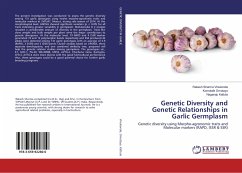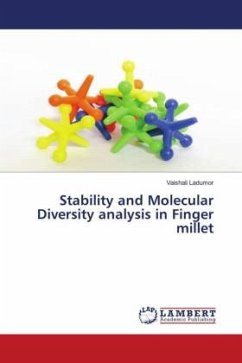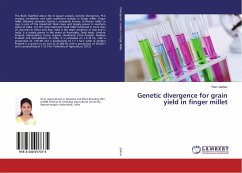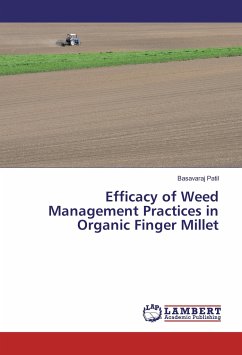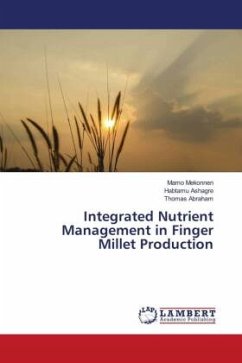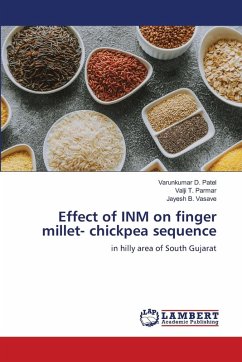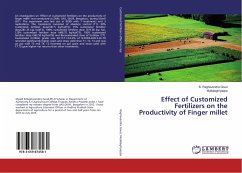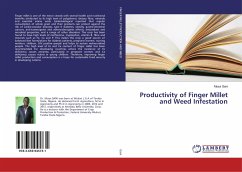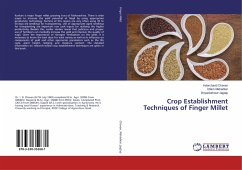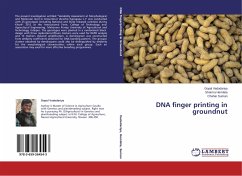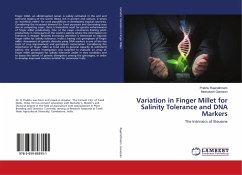
Variation in Finger Millet for Salinity Tolerance and DNA Markers
The Intrinsics of Eleusine
Versandkostenfrei!
Versandfertig in 6-10 Tagen
33,99 €
inkl. MwSt.

PAYBACK Punkte
17 °P sammeln!
Finger millet, an allotetraploid cereal, is widely cultivated in the arid and semi-arid regions of the world. Being rich in protein and calcium, it serves as "nutritious millet" for rural populations in developing tropical countries. Considering the increased demand for food purposes and decreasing area due to competing crops, there is immediate need for genetic enhancement of finger millet productivity. One of the major constraints limiting plant productivity in many parts of the world is salinity where the information on tolerance is meager. Recently increasing attention is bestowed to impro...
Finger millet, an allotetraploid cereal, is widely cultivated in the arid and semi-arid regions of the world. Being rich in protein and calcium, it serves as "nutritious millet" for rural populations in developing tropical countries. Considering the increased demand for food purposes and decreasing area due to competing crops, there is immediate need for genetic enhancement of finger millet productivity. One of the major constraints limiting plant productivity in many parts of the world is salinity where the information on tolerance is meager. Recently increasing attention is bestowed to improve finger millet for salinity tolerance. India is having rich germplasm of finger millet. Assessment of genetic diversity using DNA markers is one of the key tools of crop improvement and germplasm conservation. Considering the importance of finger millet as food and its general capacity to withstand salinity, the present investigation was targeted to evaluate an array of finger millet genotypes for salinity tolerance under in vitro condition and to assess the extent of genetic divergence among the genotypes, in order to develop improved varieties suitable for peninsular India.



